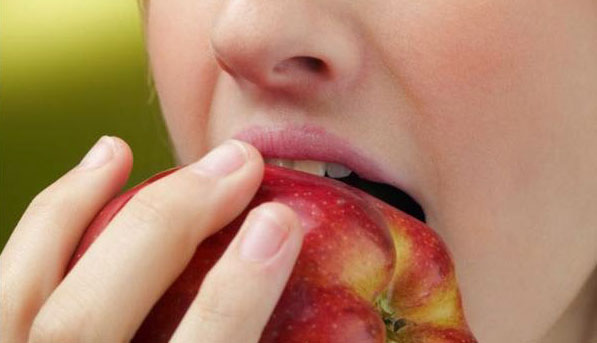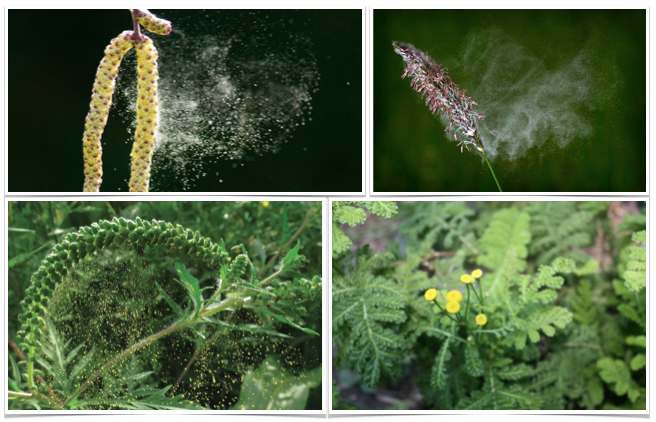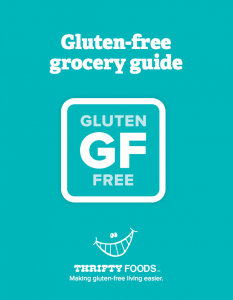When Your Fruit Bites Back – Oral Allergy Syndrome

Jodi Holland, Registered Dietitian
If the name Jodi Holland rings a bell, it may be that you are a fan of her articles in Thrifty Foods’ Wellness Magazine or perhaps you attended one of her Thrifty Foods’ store tours 1 while she covered for Jessalyn O’Donnell, away on maternity leave.
Jodi continues to share nutritional tips and strategies with individuals and families – and with us – as a Registered Dietitian with Pure Nutrition Consulting. Today she offers insight into a condition known as Oral Allergy Syndrome.
When Your Fruit Bites Back
We all know the benefits of a diet rich in fruits and vegetables. No other food group is so strongly linked to possibly lowering our risk of certain cancers, heart disease and keeping our blood pressure in check. Not to mention the array of vitamins, minerals, antioxidants and fiber they provide. But what if apples cause your lips and tongue to swell or potatoes cause your throat to itch and nose to run?
 Oral allergy syndrome (OAS) is also referred to as Pollen-food syndrome when it is caused by cross-reacting allergens found in both pollen and certain plant foods. Pollen present in or on the skin of fruits and vegetables or proteins that are similar to one another, like those in birch pollen and apples, may confuse our immune system causing an allergic response. Symptoms like itching, tingling or swelling are usually limited to the mouth or throat and can occur even if you’ve tolerated the food in the past. It is most common in older children, adults and in those that also suffer from hay fever.
Oral allergy syndrome (OAS) is also referred to as Pollen-food syndrome when it is caused by cross-reacting allergens found in both pollen and certain plant foods. Pollen present in or on the skin of fruits and vegetables or proteins that are similar to one another, like those in birch pollen and apples, may confuse our immune system causing an allergic response. Symptoms like itching, tingling or swelling are usually limited to the mouth or throat and can occur even if you’ve tolerated the food in the past. It is most common in older children, adults and in those that also suffer from hay fever.
OAS is similar to other food allergies in that the reaction is mediated by our immune system, but fortunately, unlike some food allergies, it rarely leads to anaphylaxis, a life-threatening allergic reaction. OAS can strike at any time but is heightened during the spring and is usually associated with birch-pollen allergies, but may also affect people with allergies to grass, ragweed and mugwort.

Clockwise – Birch, Grass, Mugwort & Ragweed
Foods Linked to Oral Allergy Syndrome*
Birch Pollen may trigger an allergic reaction to the following foods:
- Fruits: apple, apricot, cherry, kiwi, nectarine, peach, pear, plum, prune
- Vegetables: anise, beans, caraway, carrot, celery, coriander, cumin, dill, fennel, green pepper, lentils, parsley, parsnips, peanut, peas, potato, tomato
- Nuts: almond, hazelnut, walnut
- Seeds: sunflower
Grass may trigger an allergic reaction to the following foods:
- Fruits: kiwi, melon, orange, tomato, watermelon
Ragweed may trigger an allergic reaction to the following foods:
- Fruits: banana, cantaloupe, honeydew, watermelon
- Vegetables: cucumber, zucchini
Mugwort may trigger an allergic reaction to the following foods:
- Fruits: apple, melon, watermelon
- Vegetables: carrot, celery
*Source: Canadian Food Inspection Agency
People with OAS may react to any of the foods from a particular pollen family, although it is uncommon for them to react to all the foods within the list.
We know that Celiac Disease can present its own nutritional challenges including recovering from malabsorption to nutrient-stripped gluten-free products to sometimes having to search for more fiber. Instead of eliminating all vegetables, fruits and nuts that can contribute needed nutrients in a gluten-free way, try these tips instead:
- Substitute when you subtract. Keep a list of what you do tolerate to replace what you don’t. It is unnecessary to restrict foods which do not cause symptoms.
- Cook it up! Often cooked or canned varieties are better tolerated as heat and processing destroys the allergens. Exceptions to this include celery, nuts, seeds and spices.
- Wash and peel your produce. Better yet, have a friend do it to reduce or eliminate your reaction.
- Variety is key. Maybe green grapes are a no-go but you may tolerate the red ones.
- Connect with an allergist to rule out a more severe food allergy, to identify possible triggers and to learn about available allergy treatments.
- Chat with a Registered Dietitian to ensure you’re meeting your nutrient needs.
Jodi Holland is a Registered Dietitian with Pure Nutrition Consulting. She is a meal planning pro and an expert on nutrition for families and individuals. From prenatal nutrition to picky eaters to sports nutrition or a specific health condition like Celiac Disease, she can provide you with simple strategies and practical tips to achieve health and balance. Connect with Jodi to heighten your nutrition!
Also by Jodi Holland – Your Gluten-Free Grocery Cart
*Interested in a store tour in your area? Thrifty Foods offers nutrition tours on selecting nutritious options, nutrition on a budget, heart health, diabetes, weight management and more! Simply get a group of 8 or more together and email Jessalyn, Thrifty Foods’ Registered Dietitian and Nutrition Services Manager, to set up a date and time.
Learn how to be gluten free! Two-hour information sessions are open to anyone adversely affected by gluten: celiacs, gluten sensitive, and the wheat allergic. No diagnosis needed. Learn how to eat and live gluten free from the experts: the Victoria Chapter of the Canadian Celiac Association.
















